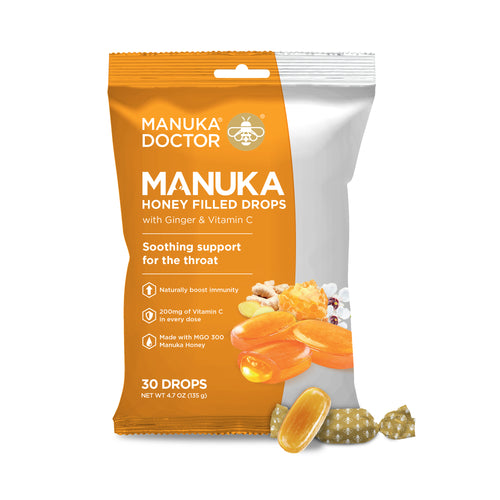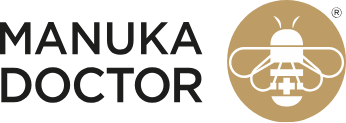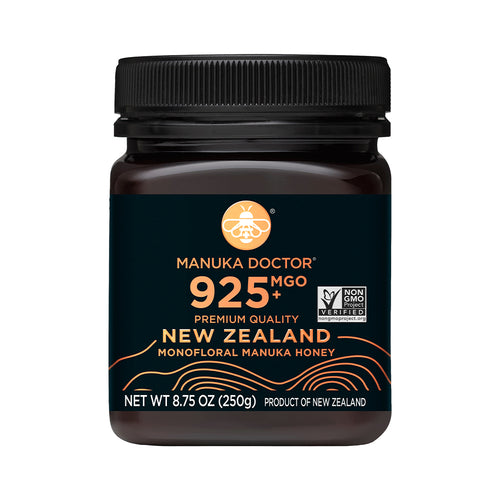Read Time: 4 minutes
Summary:
As we age, the immune system naturally slows down—a process known as immunosenescence. This decline includes reduced immune cell production and the shrinking of the thymus, a key immune organ. However, aging doesn’t mean inevitable illness. There are effective ways to support immunity in later life: getting vaccinated, eating a nutrient-rich diet (with vitamins C, zinc, and selenium), taking targeted supplements, exercising regularly, and prioritizing quality sleep. These lifestyle habits can help maintain a stronger immune response and reduce vulnerability to infections like colds, flu, and more.
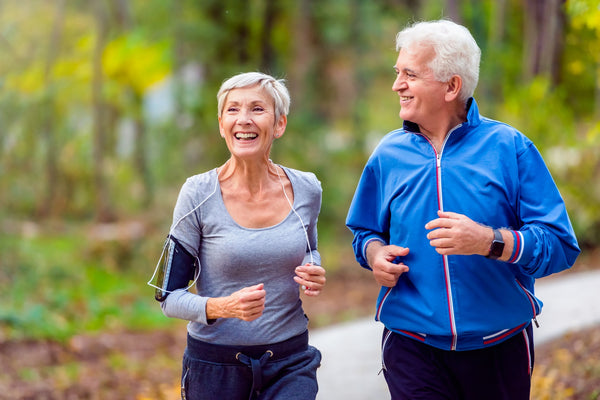
So, what’s causing this slow-down?
Think you’re catching every cough and cold going? Well, you might not be far wrong. As you get older, it’s common to experience a gentle decline in your immune system – in fact, there’s even a name to describe these changes, immunosenescence.1
A few things. First, your immune system may become less quick off the mark at spotting a foreign invader, and then slower to take effect. For example, a 2013 Los Angeles study reported that older people produce smaller amounts of certain types of immune cell (B and T cells) when their body encounters a foreign invader.2
Another issue is that one of the organs of the immune system, the thymus, starts shrinking once you hit 20 years old. This means it produces fewer specialised immune cells called T-cells, which fight viruses and other infections.3
How to support your immune system
Ageing doesn’t have to mean illness. Indeed, there’s plenty of ways you can support your immune system as you get older. Here’s a taster:
1. Get vaccinated
Vaccination against serious diseases is a really important first line of defence for older people. The NHS offers three vaccines in particular:4
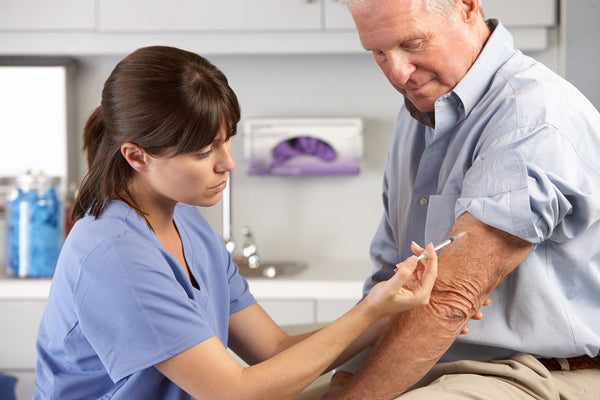
• flu – an annual injection each winter. It’s free for anyone over 65, plus younger adults with certain health conditions, including asthma and diabetes
• pneumococcal – a one-off vaccine that’s free for over-65s, plus younger adults with health problems
• shingles – another one-off jab, it’s offered to those aged 70-78 years
Read more: How does Manuka honey work inside the body?
2. Eat a balanced, healthy diet
Make sure your diet ticks off key nutrients your immune system needs to maintain its normal function. These are vitamin C, and the minerals zinc and selenium, according to the European Commission.5

Find vitamin C in fruit and vegetables, for example berries, citrus fruits and green leafy vegetables, like broccoli.6 For zinc, tuck into seafood, pork and pulses,7 while selenium is found in Brazil nuts, tuna and sunflower seeds.8
3. Take a supplement to support your immune system
Give your diet an extra helping hand with a supplement designed specially to support your immune system, like Manuka Plus The Bee’s Sneeze. As well as the nutrients vitamin C, zinc and selenium, the supplement contains freeze-dried Mañuka Honey and ginger root extract, both of which have anti-bacterial properties.9,10
Another ingredient is propolis, a type of glue made by bees for their hives, which has been shown to support white blood cell activity.11
4. Get moving
It seems exercise isn’t just good for the heart, but for the immune system, too. You remember that immune organ, the thymus, which starts shrinking once you’ve hit 20? In a 2018 University of Birmingham study, the thymus of amateur cyclists aged between 55 and 79 was found to be making as many white blood cells as a young person. The researchers suggested that regular exercise was the key.12
5. Sleep tight
Not getting enough sleep can also impact your immune system. When you sleep, your body makes and releases a type of protein called cytokines, which target areas of infection and inflammation in your body – so skimping on sleep reduces this work.13 A 2019 study by Germany’s University of Tübingen reported that getting a good night’s sleep also improved the efficiency of those infection-fighting T-cells.14
The Sleep Council advises 7-9 hours sleep a night for adults aged 18-64 years, and 7-8 hours for people aged 65 and over.15
Sources:
1. British Society for Immunology. Immunosenescence research: the fight for healthy ageing. https://www.immunology.org/news/immunosenescence-research-the-fight-for-healthy-ageing
2. Montecino-Rodriguez E, Berent-Maoz B, Dorshkind K. Causes, consequences, and reversal of immune system aging. J Clin Invest. 2013 Mar 1; 123(3): 958-965. https://www.ncbi.nlm.nih.gov/pmc/articles/PMC3582124/
3. LiveScience. Aging Lowers Your Immunity. https://www.livescience.com/35908-aging-lowers-your-immunity.html
4. NHS Inform. Immunisation: Older adults over 65 years. https://www.nhsinform.scot/healthy-living/immunisation/when-to-immunise/older-adults-over-65-years
5. European Commission. EU Register on nutrition and health claims. http://ec.europa.eu/food/safety/labelling_nutrition/claims/register/public/?event=search
6. National Institutes of Health. Vitamin C: Fact Sheet for Health Professionals. https://ods.od.nih.gov/factsheets/VitaminC-HealthProfessional/
7. National Institutes for Health. Zinc: Fact Sheet for Health Professionals. https://ods.od.nih.gov/factsheets/Zinc-HealthProfessional/#en3
8. National Institutes for Health. Selenium: Fact Sheet for Health Professionals. https://ods.od.nih.gov/factsheets/Selenium-HealthProfessional/
9. Johnston M, et al. Antibacterial activity of Manuka honey and its components: An overview. AIMS Microbiology. 2018. 4(4):665-664. https://www.aimspress.com/fileOther/PDF/microbiology/microbiol-04-04-655.pdf
10. Karuppiah P, Rajaram S. Antibacterial effect of Allium sativum cloves and Zingiber officinale rhizomes against multiple-drug resistant clinical pathogens. Asian Pac J Trop Biomed. 2012 Aug;2(8):597-601. https://www.ncbi.nlm.nih.gov/pmc/articles/PMC3609356/
11. Al-Hariri M. Immune’s-boosting agent: Immunomodulation potentials of propolis. J Family Community Med. 2019 Jan-Apr; 26(1): 57-60. https://www.ncbi.nlm.nih.gov/pmc/articles/PMC6335834/#ref12
12. Duggal NA, et al. Major features of immunesenescence, including reduced thymic output, are ameliorated by high levels of physical activity in adulthood. Aging Cell. 2018 Apr; 17(2). https://www.ncbi.nlm.nih.gov/pubmed/29517845
13. National Sleep Foundation. How Sleep Affects Your Immunity. https://www.sleepfoundation.org/articles/how-sleep-affects-your-immunity
14. Medical News Today. How sleep can boost your body’s immune response. https://www.medicalnewstoday.com/articles/324432.php
15. The Sleep Council. How much sleep do we need? https://sleepcouncil.org.uk/how-much-sleep-do-we-need/
Read more: Supercharge your immune system



